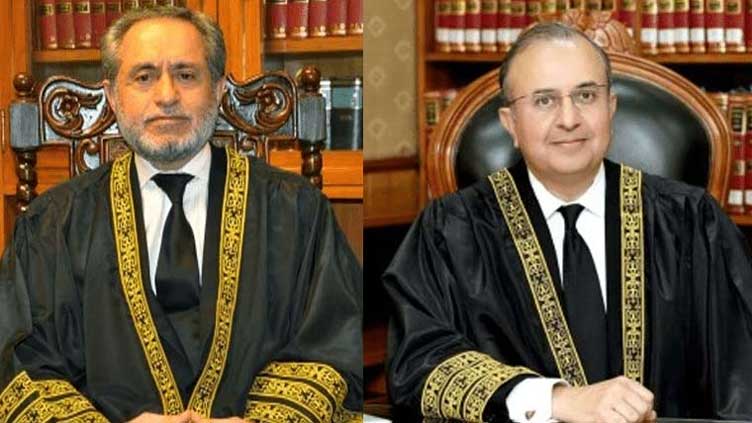What Justice Mandokhail says in response to Justice Mansoor Shah's letter?

Pakistan
He says recommendations proposed by Justice Shah have been incorporated into draft rules
ISLAMABAD (Dunya News) - Justice Jamal Khan Mandokhail on Saturday responded to Justice Mansoor Ali Shah’s letter, clarifying key developments regarding the judicial commission’s rules and proceedings.
According to sources, Justice Mandokhail acknowledged receiving the letter of Dec 12. In his response, he highlighted that the Judicial Commission had been reconstituted following the 26th Amendment.
Justice Mandokhail explained that the commission had authorised the chief justice to form a committee for drafting new rules. In the Judicial Commission’s meeting on Dec 6, Chief Justice Yahya Afridi unanimously appointed Justice Mandokhail to lead the committee tasked with preparing the draft rules.
Also read: 26th Amendment disrupted balance in judicial appointments: Justice Mansoor
Justice Mandokhail further stated that two committee meetings had already been held. He underlined that the recommendations proposed by Justice Shah had been incorporated into the draft even before the letter was received. The proposed draft had already been shared with Justice Shah for review, he added.
WHAT JUSTICE MANSOOR WROTE?
Supreme Court's senior judge Mansoor Ali Shah wrote to Justice Jamal Mandokhail, head of the rules-making committee, urging an urgent revision of the judicial appointment process.
In the letter, Justice Shah noted that the judiciary historically played a pivotal role in appointments, but this balance had shifted significantly post-26th Amendment. “The executive’s enhanced role in appointments has disrupted the equilibrium,” he stated.
Justice Shah warned that even a single irregular appointment could erode public trust in the judiciary. To address this, he submitted detailed proposals to the committee, emphasising the need for rules that uphold judicial independence.
Citing Article 175(4) of the Constitution, he highlighted that the Judicial Commission had the constitutional mandate to develop such rules. Without them, he cautioned, the Commission’s proceedings on appointments could lose legitimacy.
He also expressed concerns over the judiciary’s minority position in the Commission after the amendment, warning that executive dominance risks politically influenced appointments.
Transparent and impartial rules, he stressed, were essential to safeguard judicial autonomy and public confidence.


